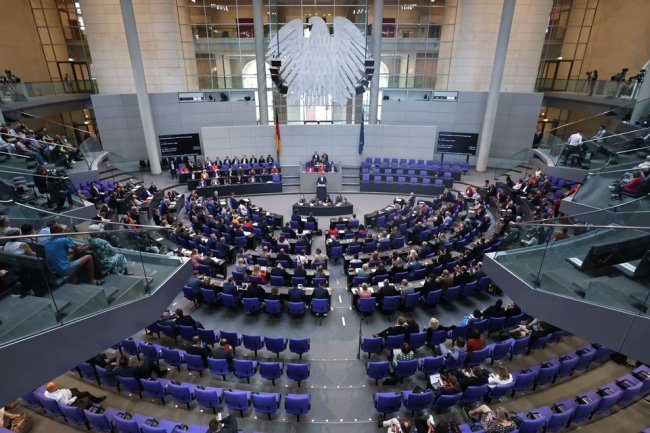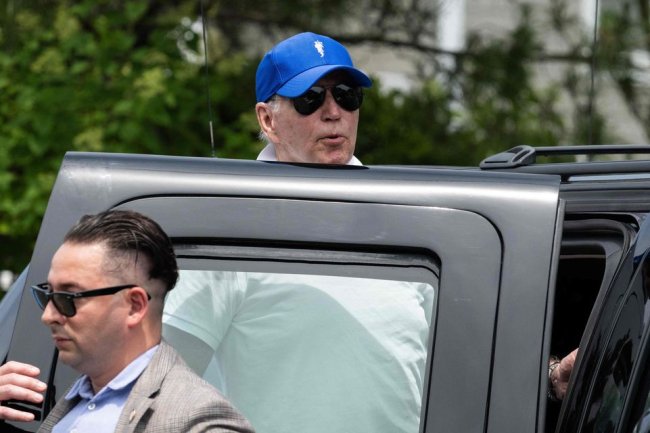Putin’s North Korean Rendezvous
The authoritarian axis will get stronger if Russia defeats Ukraine. By The Editorial Board Sept. 5, 2023 6:33 pm ET North Korean leader Kim Jong Un, left, toasts with Russian President Vladimir Putin in Vladivostok, Russia on April 25, 2019. Photo: ?????/KCNA via KNS/Associated Press Vladimir Putin is digging around for more artillery shells to sustain his assault on Ukraine, and U.S. officials say the Russian dictator may soon visit with North Korea’s Kim Jong Un. A global axis of authoritarians is consolidating against the West, and what happens in Ukraine will reverberate far beyond Europe.


North Korean leader Kim Jong Un, left, toasts with Russian President Vladimir Putin in Vladivostok, Russia on April 25, 2019.
Photo: ?????/KCNA via KNS/Associated Press
Vladimir Putin is digging around for more artillery shells to sustain his assault on Ukraine, and U.S. officials say the Russian dictator may soon visit with North Korea’s Kim Jong Un. A global axis of authoritarians is consolidating against the West, and what happens in Ukraine will reverberate far beyond Europe.
Mr. Putin may meet Mr. Kim in Vladivostok on Russia’s Pacific coast as soon as this month, according to press reports. The Russian is looking for more weapons, and the North Korean dictator would apparently like nuclear submarine technology. Mr. Putin has also been hitting up Iran for drones, and Russia may conduct joint naval drills with North Korea and China.
The meeting underscores the global nature of the threat to U.S. interests. One reason the Japanese prime minister visited Kyiv this spring is because America’s allies in Asia understand that Ukraine isn’t a distant squabble. Russia has its own Pacific ambitions, including militarizing the Kuril Islands, some of which Japan also claims. A Russia that prevails in Ukraine will provoke elsewhere. Mr. Putin is also the junior partner to the neighborhood’s No. 1 threat: The Chinese Communist Party.
The conventional wisdom is that Mr. Putin is weak for needing help from North Korea, a pariah state that starves its own people. But the Russian still thinks he can squeak out enough ammo to win in Ukraine, especially if political support for Kyiv crumbles. Mr. Putin understands what some American politicians don’t— that this would be an enormous victory for the new axis, making American support in the Pacific less credible.
The Ukrainians are making slow gains against Russian defensive lines, despite limited training and without much air power. But the risk of the war seeping into a larger and more volatile fight will increase the longer the conflict continues.
The U.S. diplomatic and military interest is to expose Mr. Putin’s gambit as a loser. Yet more than 18 months into the war, the Biden Administration hasn’t provided long-range missiles to Ukraine, despite bipartisan support in Congress. The Army tactical missile system would put Russia’s supply and logistics haven in Crimea at risk.
The Biden Administration first worried that these missiles would be too escalatory. How would Mr. Putin or our nervous allies react? That concern has been overrun by reality. The U.K. didn’t wait for U.S. leadership, donating longer-range Storm Shadow missiles. Russia didn’t respond by attacking NATO.
But the Ukrainians need deeper magazines, and the Army tactical missile system (ATACMS) can strike even farther into Russian positions. It travels faster than Storm Shadow and plugs into the U.S. Himars system so it doesn’t have to be launched from the air. The Biden crowd is telling the press it can’t spare ATACMS because U.S. stocks are too low. If that’s true, it’s an American emergency, not a compelling argument for withholding support.
A vogue view on the right and left is that the U.S. drove Russia and China together. But the Russia-North Korea summit is a reminder that these are partnerships of ideology and opportunity. The first step to breaking up the party is rendering Mr. Putin’s Ukraine play a miserable failure.
Journal Editorial Report: Paul Gigot interviews General Jack Keane. Images: AP Composite: Mark Kelly The Wall Street Journal Interactive Edition
What's Your Reaction?













